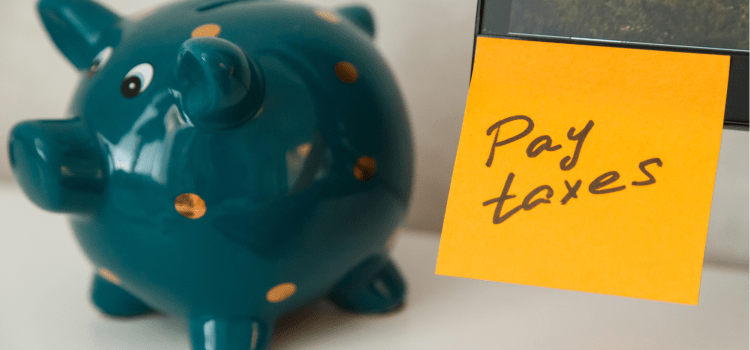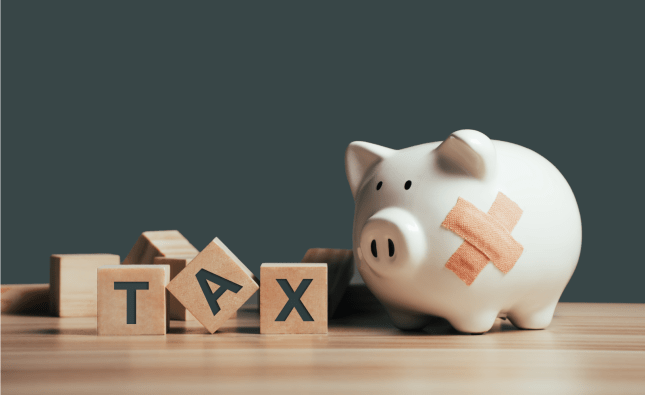The nature of being a freelancer means that you’re self-employed, and therefore not paid by an employer who will make tax deductions on your behalf through the Pay As You Earn (PAYE) system.
Generating your own income from self-employment means you’re also responsible for paying your own tax and keeping HM Revenue & Customs (HMRC) up to date with your financial situation.
How you pay the tax you owe on your freelance earnings depends on how you are set up as a business.
For most freelancers this usually means operating as either a sole trader or as a limited company. These structures have different rules for reporting and paying tax (as well as different tax rates) but because they’re the most common options, we’ll go over both.
Paying tax as a (freelance) sole trader
If you’re set up as a sole trader, you will need to submit an annual Self Assessment tax return online or through the post and pay Income Tax on your freelance earnings. This is the most popular route for self-employed freelancers to take (but other options are available!).
Submitting a Self Assessment tax return
There are different deadlines depending on whether you submit your Self Assessment tax return online or through the post.
HMRC is encouraging all taxpayers to file returns digitally moving forward (as part of Making Tax Digital) but for now, paper returns are still accepted.
If you submit a paper tax return, the deadline is 31st October following the end of the tax year being reported. If you submit an online Self Assessment, you have a little longer, until 31st January.
Paying Income Tax
After submitting your tax return, you’ll receive a tax bill detailing how much you owe in Income Tax and National Insurance.
Your tax bill can be paid:
- Online through your account with HMRC by debit or corporate credit card
- Via Direct Debit
- By approving a payment through your online bank account
- Telephone bank transfer
- At your bank or building society
- By cheque via the post
You also have the option to pay your tax bill through your tax code. Taking this option means your tax code will change, and your employer will deduct the tax you owe for self-employment alongside your usual deductions. It might be something to avoid if you don’t want your employer to know you’re self-employed! This is only available if:
- You owe less than £3,000
- You already pay tax through PAYE
- You submitted your paper tax return by 31st October or your online tax return by 30th December (a little earlier than the usual 31st January deadline for online submissions)
Making payments on account
If your tax bill comes to more than £1,000 then you might also need to make payments on account. This is where HMRC ask you to make advance payments towards next year’s tax bill, based on predictions of what you are likely to earn.
These are paid in two installments and need to be paid by the following deadlines:
- First installment – 31st January (the same deadline for paying the current year’s tax bill)
- Second installment – 31st July of the same year.
Paying tax if you’re set up as a limited company
If you’re set up as a limited company, you will need to submit an annual Company Tax Return and pay Corporation Tax on your freelance earnings.
The deadline for filing this type of tax return is 12 months after the accounting period it covers has ended.
Paying Corporation Tax
Once you have submitted your Company Tax Return, you will then be informed how much Corporation Tax you need to pay.
If your taxable profits are below £1.5 million, this needs to be paid within 9 months and 1 day of the accounting period ending.
If your taxable profits exceed £1.5 million, you will need to pay your tax in installments, each with their own separate deadlines.
Can a freelancer claim tax relief on expenses?
Yes, just like any other business, freelancers are allowed to claim allowable expenses as tax relief against their bill, helping to keep your tax bill down!
Common examples of allowable expenses freelancers claim include:
- Work-from-home expenses (such as a portion of your rent, utility bills, internet connection, etc.)
- Business-related supplies and equipment (laptop, printers, software, stationery)
- Work-related travel costs (tickets, hotels, food and drink)
- Professional services (solicitor, accountant, etc.)
- Marketing and advertising costs (business cards, web hosting fees)
- Membership fees and subscriptions
Any expenses you claim need to be directly related to your freelancing work and necessary to the operation of business-related activities.
Remember to keep receipts and documentation to support your claims, just in case you ever need to produce them for an audit!
Find more expert advice and handy resources for freelancers in our info hub!








[…] will typically establish your affordability through your net income – what’s left once you pay your tax bill and other expenses. If you’re the director of a limited company, lenders can take salary and […]